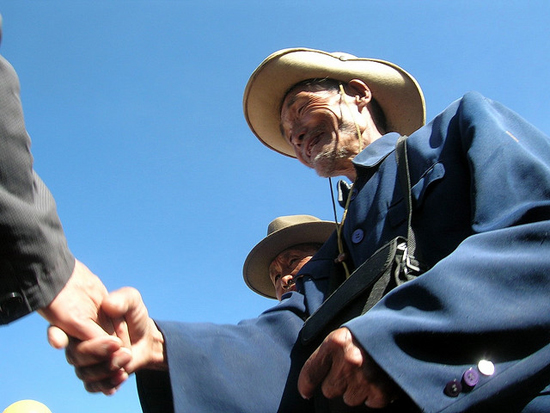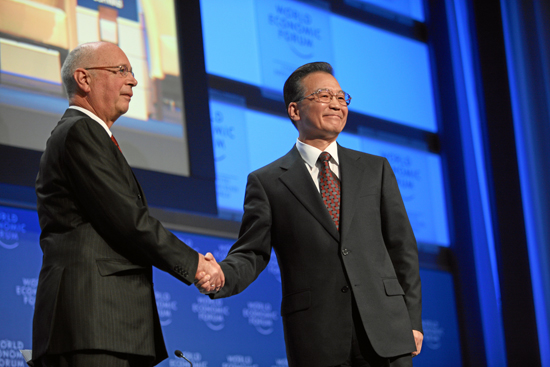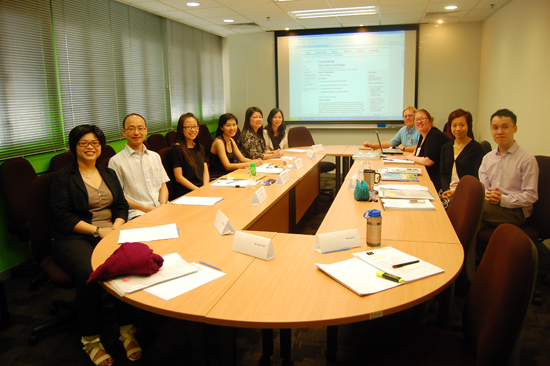Culture and Society: Greetings and Courtesies
General
Chinese greetings are imbued with a sense of duty and respect. The standard Chinese greeting is a handshake or a slight nod, with the eyes averted toward the ground. Handshakes are done with the right hand only and tend to be firm but brief. When greeting a superior, however, the handshake is often lighter. Lowering the eyes slightly, especially when meeting a person of higher status or for the first time, is considered polite and respectful.
Normally, the person of higher social status initiates the handshake. For example, a teacher offers his or her hand to a student, and an elder extends his hand to a junior. Likewise, a married female usually offers a handshake to an unmarried woman. In meetings between a host and a guest, the host extends a hand first to show welcome. However, if someone extends a hand out of turn, Chinese do the polite thing and accept it in order to save "face."
When entering a group, Chinese address the first greeting to the most senior member present and then move down the social hierarchy to greet others present. Not every member of the group may be greeted on such occasions. If seated, it is considered polite to rise for greetings.
China is home to several languages, depending on the region. Phrases below are in the official language, Mandarin Chinese.
Informal Greetings
Informal greetings are reserved for family and close friends, with whom the Chinese use the informal n? (you) and either complete or given names, depending on the intimacy of the relationship. Chinese convention places the family name before the given name(s), so someone named Chang Huan would come from the Chang family and have the individual name, Huan.
Greetings are usually brief, with someone saying, N? h?o (Hello), Z?oshàng h?o (Good morning), or Z?o ?n (Peace at morning), and shaking hands. Another common greeting is N? ch? ma? (Have you eaten?), which was historically a sincere question to determine if a person was hungry, but now simply means "Hello." Also used to greet someone, N? z?nme yang (How are you?) is more easily understood in the Beijing area than in other parts of the country. Friends who haven't seen each other for a while may comment, H?oj?u bújiàn (Long time no see).
Following this, someone may ask, N? h?o ma (How are you?), to which the common response is W? h?n h?o. N? ne? (Fine, thanks. And you?). When meeting someone informally, Chinese introduce themselves with W? xìng ___ or W? jiào ___ (both meaning "My name is ___"). This is usually followed by, N? jiào shénme míngzi? (What's your name?). After meeting each other, both parties usually comment, H?n g?oxìng rènshi n? or Xìnghuì (both meaning "Nice to meet you").
When taking leave of an informal situation, Chinese repeat handshakes or bows to each person, and say, Bài-bài (Bye-bye), Zàijiàn (See you again), Míngti?n jiàn (See you tomorrow), or Huíjiàn (See you later).
Formal Greetings
As the Chinese are very conscious of status, greetings to superiors in age or rank are especially cordial. The most basic way the Chinese express respect in a greeting is to use the formal n?n (you) and someone's surname, or a surname followed by a title of honorific. For example, a teacher named Wang would be called “Wang Teacher” in formal Chinese. Common academic titles include Bo Shi (Ph.D.), Shuo Shi (Master's), and Xue Shi (Bachelor's). Common professional titles include Yi Sheng (Medical doctor), Jiao Shou (Professor), Lao Shi (Teacher), Lu Shi (Lawyer), and Gong Cheng Shi (Engineer), and Liu Jing (Officer).
When addressing an unknown person where the profession is obvious (as in the case of a shopkeeper or doctor), Chinese will often address him or her by job title alone. If someone's profession is unknown, the Chinese substitute an appropriate honorific for the person's general position in society or relation to the speaker. For example, an old woman might be called “Grandma,” while a man a few years older than the speaker might be referred to as “Uncle,” whether they are related or not. The Anglicized “Mr.” and “Mrs.” are also appropriate in many cases.
Status even applies to greetings within the family structure. Every aunt, uncle, cousin, or sibling will be called something different depending on his or her relationship to the speaker. The naming structure is so complex that many Chinese struggle to keep all the terms straight and often find polite ways to avoid greeting their more distant relatives by their family honorific.
Formal greetings use the same handshake or nod as informal greetings, along with more polite language.
Business Greetings
Business greetings mirror formal greetings for the most part. Chinese businesspeople greet the most senior member of a group first. They refer to each other by surname, and acknowledge everyone's status with titles and honorifics. Common business titles include Sh?uxí zhíxíng gu?n (Chief Executive Officer), Zh?xí ji?n d?ngshì z?ngji?n (Chairman and Managing Director), Xi?oshòu z?ngji?n (Sales Manager), Kuàijì j?ngl? (Chief Accountant), and Sh?ngch?n z?ngji?n (Production Director).
The Chinese exchange business cards with some ceremony. Cards are offered and received with two hands, and duly inspected and commented upon by the recipient. Chinese expect business cards to include job titles, as these determine each person's rank at meetings. Cards are usually kept in view and treated with the same respect due the person whose name they bear. Chinese executives may offer detailed cards only to equally ranked counterparts, giving subordinate members name cards instead. This practice is common in government circles.
The concept of "face"—being respected by one's peers—is paramount with the Chinese. They are enormously sensitive to maintaining "face" in everything they do. Saying or doing anything that causes someone to look foolish can instantly destroy a relationship and any business that might result from it. Because of this, Chinese avoid openly criticizing someone in front of others. The rank of a person within a company or group is also carefully determined before commenting on their performance since an individual's reputation may also be his or her company's reputation. The relationship developed with such a person represents the relationship with the entire company.
Conversation Topics
The Chinese enjoy discussing many topics such as travel to foreign countries, other cultures, Chinese geography, food, and so on. They also enjoy talking about family, but unless the relationship is extremely close, the level of discussion remains general and non-invasive.
Taboos
Politics is a sensitive subject and often avoided. Taiwan is not shunned as a topic, but it is never referred to as the Republic of Taiwan or terms that suggest it is anything more than another Chinese province.
Some forms of handshaking are seen as inappropriate by the Chinese. For example, it is considered impolite to shake hands crossways or with the other hand in a pocket. It is also seen as rude to shake someone’s hand while wearing sunglasses, a hat, or gloves. Staying seated while greeting someone shows a lack of respect.
Business cards are never written on in the presence of the person whose name they bear, as to do so is considered highly disrespectful.
Gold or red are appropriate colors for wrappings, while white and black are colors of mourning. Receivers should never open gifts in the presence of the giver.
Article written for World Trade Press by John E. Roper.
Copyright © 1993—2025 World Trade Press. All rights reserved.

 China
China 

